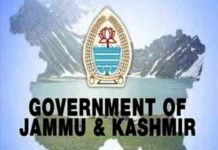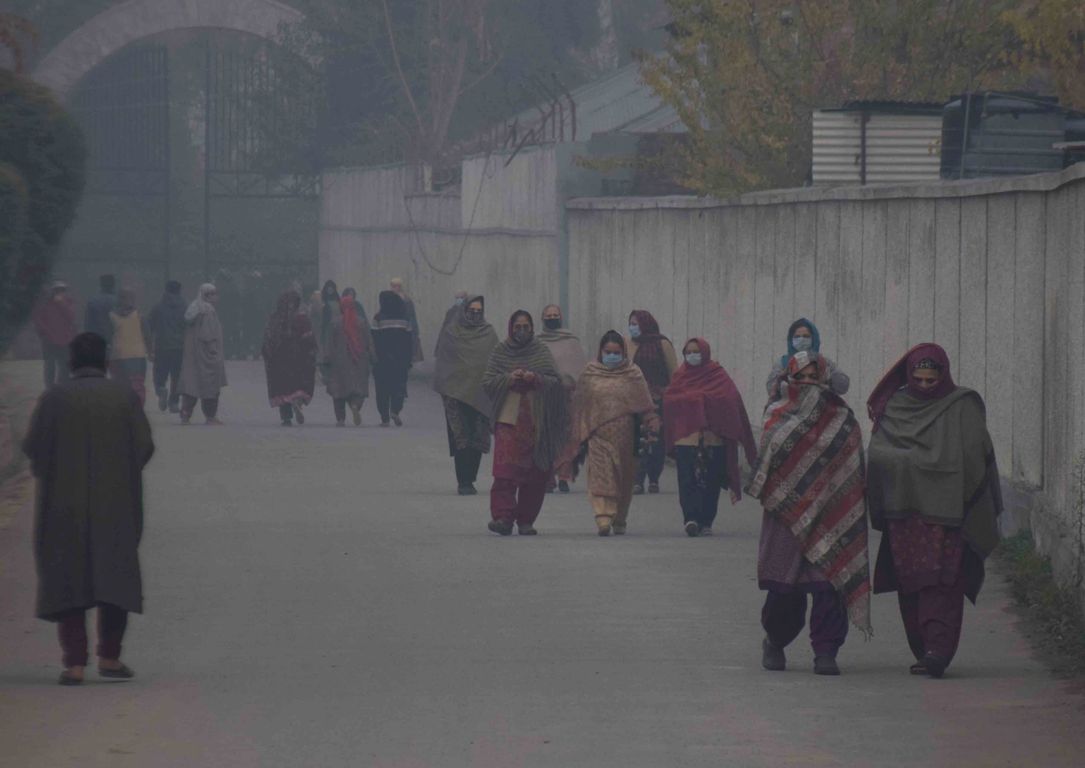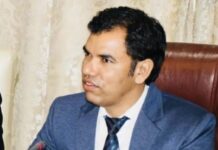SRINAGAR: On February 13, the Lok Saha passed the Jammu and Kashmir Reorganisation Bill, 2021 that replaced an ordinance merging the Jammu and Kashmir (J&K) cadre of civil services officers with the Arunachal Pradesh, Goa, Mizoram Union Territory (AGMUT) cadre. Justifying the cadre integration, Minister of State for Home Affairs G Kishan Reddy said the government was working to take Jammu and Kashmir on the path to development and around 170 central laws are being implemented in Jammu and Kashmir after the abrogation of Article 370 of the Constitution that gave a special status to the erstwhile state.
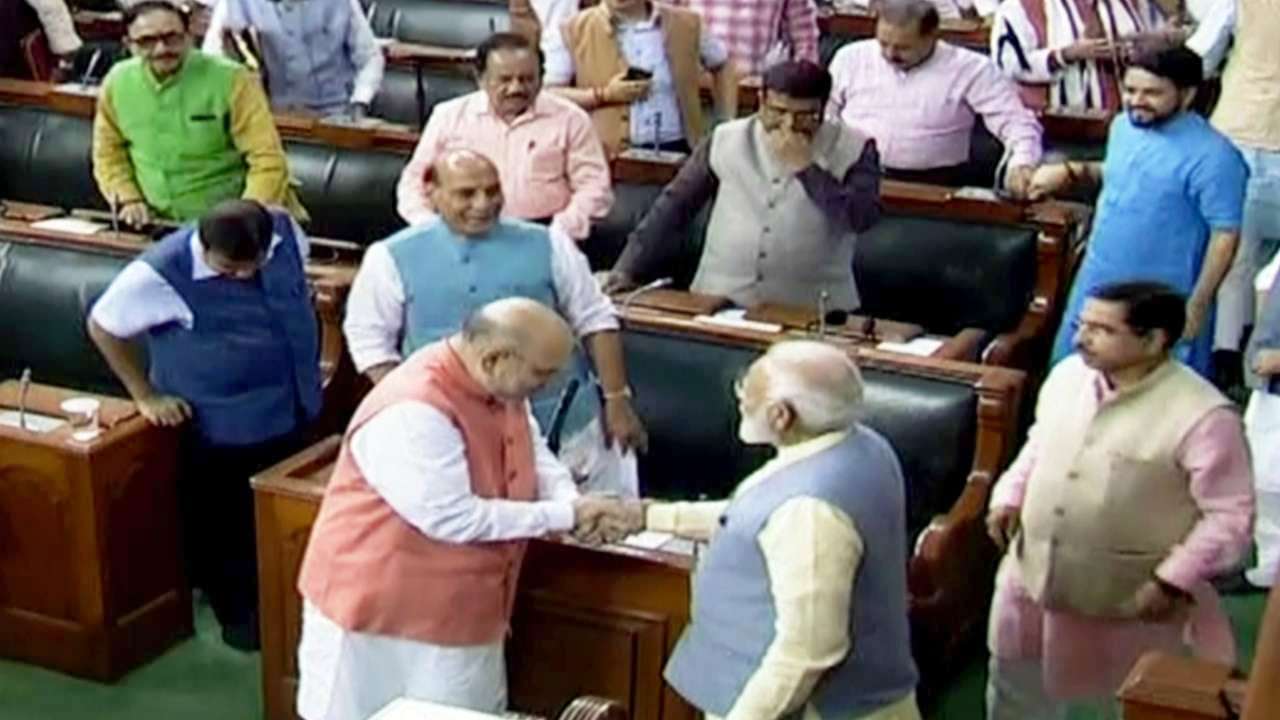
Between the introduction of the bill to its passage in a house dominated by the BJP, there was an intense debate. Participation came from all the parties including the National Conference that has three members in the House.
Owaisi’s Speech
Asaduddin Owaisi, President, the4-time member of the house from Hyderabad asserted the central government’s moves have alienated and disempowered Kashmiris. Of the two speeches that Kashmir watched keenly and carefully, one was that of Owaisi. The other was the response of the Home Minister to the debate at the conclusion of the sitting.
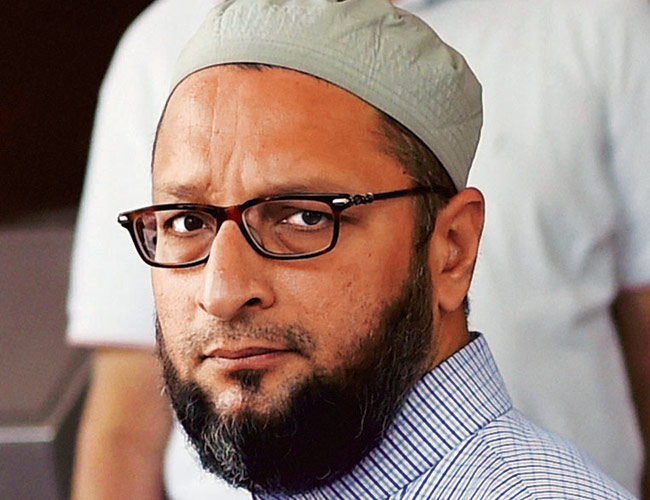
Owaisi spoke in opposition to the Jammu and Kashmir reorganisation (Amendment) Bill, 2021 saying that it is his party’s consistent stand that the central government through its brute majority resorted to a constitutional breach by abrogating Article 370 and adding that it continues to be his viewpoint.
By merging Jammu and Kashmir cadre in (Arunachal Pradesh, Goa, Mizoram and Union Territory (AGMUT), he pointed out, the government is showing that it has backed off on its promise of reinstating full statehood of Jammu and Kashmir. Raising fingers on the intentions on the government, he said that that the promise of restoring statehood by the government never seemed to be the priority as it was a mere play of words.
Despite being the only Muslim majority state in India, Owaisi said their proportion in the state administration is less. “Despite a high Muslim population in the state, Muslim representation in the bureaucracy has been low. Out of 24 secretary posts, only 5 are Kashmiri Muslims. In 58 IAS posts, only 12 are Muslims which is 17.24 per cent. As per the 2011 census, the population of Muslims in Jammu and Kashmir was 68.31 per cent while the population of our Hindu brethren is 28 per cent. And in Tier-2 level of bureaucracy called KAS, out of 523 only 220 i.e., 42 per cent are Muslims,” Owaisi said. “In 248 officers, only 108 are Muslims. Now coming to IPS, out of 66 posts, only seven are Muslims. What are you planning to do?”
Owaisi hit at the core of the Kashmir narrative. “The misinformation that Kashmir is backward is a product of hatred; it is not based in facts,” he said. “The truth is that 10.31 per cent of the population lives below poverty in Kashmir while the all India figure is 21.92 per cent.” He blamed the government’s wrong decisions that, for the third time in history, there is no Rajya Sabha representative from Kashmir.
The Hyderabad lawmaker informed the government that it is responsible for internationalization of Kashmir issue by inviting European delegations to Kashmir. “It is right that no other country must interfere in our internal issues. But you arranged for European Parliament officials to visit there and are again arranging a visit on 16 February. Why are you taking Europeans and not an all-party delegation there? Do you wish to internationalise this issue?” he said. “They invite European delegations to tour Kashmir but don’t organise an all-party delegation of Indians, is this not FDI?”
Owaisi claimed that the government restored high-speed internet in Jammu and Kashmir under the pressure of United States administration. “Was it not under American pressure that you reinstated 4G internet in Kashmir? He questioned the government,” he lamented.
Raking up the state of human rights, Owaisi questioned how many Kashmiri youths are detained in prisons away from Kashmir? He said the families have to sell their properties to go see their imprisoned children in prisons far away from their homes. “How many children from Kashmir have housed in Agra, Bareilly and Ambedkar Nagar jails under PSA? When will you release them?” he asked, the home minister. He narrated the struggle of the parents of Kashmir whose children are incarcerated far off from the home. According to him, Bilal Ahmed from Kupwara who studied at Amar Singh College is jailed 1600 kilometre far away from the home whose father had to sell his cow of Rs 25000 and went to the high court to make his son appear in exam but was disallowed. Similarly, another detainee in Bairley jail, Fayaz Ahmad’s father took the debt of Rs 35000, and in another case of youth from Baramulla, Naveed had to sell his land. When will you release the PSA detainees, he asked the government?
Insisting that Kashmir has been made as an experimental lab, he informed the speaker that all secular parties should stand warned who supported the government on abrogation of Article 370 as the government repeats its actions. “I want to warn all secular parties here. This government will repeat this again. God forbid if Chennai, Ahmedabad, Bengaluru and Hyderabad be made Union territories. People are applauding this move now when Lucknow, Bengaluru and Mumbai are made into UTs, they will lament,” he said.
Manish Tiwari Speaks
Participating in the debate, Manish Tewari (Congress MP from Punjab), said that the after the abrogation of Article 370, the government told the country that there will be peace, development in the country but in last 17 months the opposite of it has happened. The erstwhile state was under the governor, then president and now Lt Governor’s rule. He flagged the rising ceasefire violations in the J&K.

“In 2018 there were 2936 ceasefire violations, in 2019, 3299 ceasefire violations and in 5133 in 2020,” he said, asking the government if this is the peace? He pointed out no new industries came into the region. In Jammu, around 12997 industrial units had been working but today only 5890 are working which means around 60 per cent of industries have shut. Some existing units were closed in the last two years. Since the abrogation of the article, according to Kashmir Chamber of Commerce and Industry (KCCI), in the initial 120 days, the valley lost Rs 17877 crore while tourism and handicrafts industry has been battered.
Considering that the internet is the steam engine of the digital age, Tiwari informed the parliament that from August 5, 2019, to March 2020 the internet was shut for 213 days and from March 2020 to Feb 2021, the internet was shut again 70 times.
He also informed the parliament that Jammu and Kashmir figure high on employability and is at second number with 16.2 per cent. “Even before Covid-19, schools had to be shut down for over 202 days. What kind of development and peace is this? The people have to live under curfew. The constitutionality of the Act is still pending in Supreme Court, he says urging the House to withdraw the Bill.”
Husnain Masoodi Intervention
National Conference lawmaker Hasnain Masoodi (J&K NC) said this bill is akin to an assault on the people of Jammu and Kashmir. He said that the law is the violation of the concepts espoused by Prime Minister and Law Minister that India is a mother of democracy while the latter said that there are separation of powers.
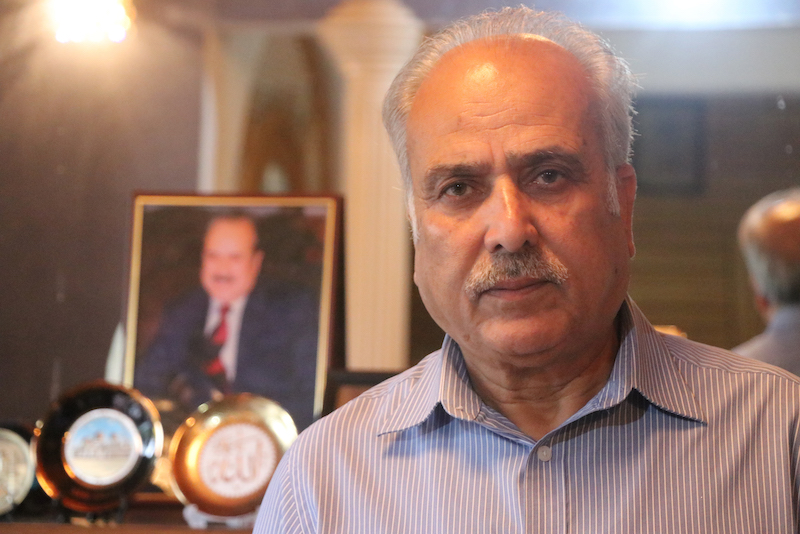
Addressing the house, Masoodi said that reorganization is a violation and an undemocratic and unconstitutional decision and is a fall out of the decision taken on August 5, 2019 taken without any consultation with the stakeholders. “It was a war against the people of Jammu and Kashmir and we have decided to fight against it in an appropriate way,” the MP from Kashmir informed the parliament.
He further said that in this regard, around 15 petitions were filed in the Supreme Court and the decision is under judicial scrutiny in India’s top constitutional court to see whether it’s right or not, since the August 5- 2019 decision is no less than constitutional assault. “The Supreme Court after considering formally sent it to the constitutional bench for hearing, it is expected that the suspected law will not be implemented which is under judicial scrutiny,” he said, adding that the bill (Reorganisation 2021) is part of the implementation process that has already started. “What if the SC constituent bench says the first step is unconstitutional and the interpretative clause has been used as substantive changes without consulting the state,” Masoodi asked.
Further, raising questions against the centre’s move to merge Jammu and Kashmir Cadre with AGMUT, he said that the merger of Jammu and Kashmir cadre with AGMUT goes against the promises made by the Home Minister of India from the floor of this house about the restoration of statehood to Jammu and Kashmir. “If the statehood is to be restored then what’s the need to make 93 amendments. This signal isn’t going out good since you know what is happening on the ground in Jammu and Kashmir. Nearly 400 civilians have been killed in a year, 100 encounters have surfaced with 20 armed encounters in urban areas, while there is no development,” he said.
The MP questioned the ratio of officers from outside states working in UT bureaucracy without any grassroots knowledge. According to him in the case of administrative deficiency, officers from outside Jammu and Kashmir used to come on deputation. Around 80 per cent of the district magistrates are outsiders and it (Bill) won’t improve the administrative efficiency since the officer must-have understanding of native problems including the topography, he said.
Questioning the claims of the government the MP from Kashmir informed the house that whatever government is saying is mistruth and is not based on ground reality. “For 550 days union government didn’t dare to restore the high-speed (4G) mobile internet service and tourism is nowhere. The fruit is being imported from outside to disempower locals while sand mining has become a big racket now in the valley,” he said.
Pointing at Home Minister, Masoodi said that he must fulfil all the promises made on August 5, 2019, and restore the August 4, 2019 position. “Why isn’t ‘one nation, one constitution’ a matter in Bodoland, in the northeast? We didn’t even have the Inner Line Permit that exists in northeast,” he asked, highlighting the provisions enjoyed by the northeast states and insisting the government to respect the aspirations of Jammu and Kashmir, he alleged discrimination. “Why should the government look at the Jammu and Kashmir from a different eye and why should there be any kind of discrimination? Do justice with Jammu and Kashmir,” he said adding that the Jammu and Kashmir have always contributed to the nation and the government should not implement anything which is constitutionally suspect.
Home Minister Responds
Winding up the discussion, Home minister, Amit Shah countered to oppositions ‘allegations’ and said Jammu and Kashmir will get back the status of a state at an appropriate time. He asserted that, it is not mentioned anywhere in the bill that it will not give statehood to Jammu and Kashmir. “I say this again that the bill has nothing to do with the statehood of Jammu and Kashmir.”
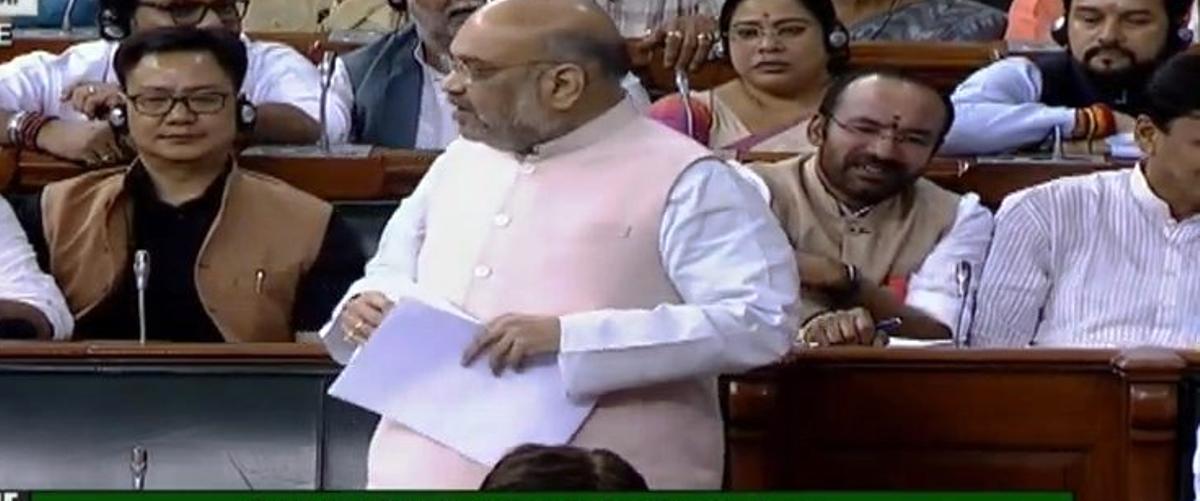
Answering the opposition MP’s questions, Shah said that it was said that what happened to the promises made at the time of removing Article 370? “I will definitely answer that. But it has only been 17 months since Article 370 was removed. Have you come to terms with what you did for 70 years?” he questioned the opposition parties ruling in Kashmir and raising the objections on abrogation of Article 370.
Questioning the dynastic politics in Kashmir, Shah questioned the role played by three families, who have ruled in Jammu and Kashmir for years and questioned their contribution. “I want to tell the House with pride that in 17 months, we have sent an amount of Rs 881 crore from the ministry of health under PMDP (Prime Minister’s Development Package) in Jammu and Kashmir,” he said.
Panchayati Raj has been restarted and empowered in Jammu and Kashmir after our government came to power, the minister asserted. He also cited results of the recently held DDC polls in J&K, and said political parties who contested the election promising bringing back Article 370, have been wiped off by the people.
Answering Owasi’s questions on why the Muslim majority region is ruled by non-Muslims, Shah said that Owasi is introducing Hindu-Muslim angle even to the bureaucracy of the country. “Can Hindu officer not serve Muslim populace or a Muslim officer to Hindu populace? You divide officers on the basis of faith and call yourself secular?” he lashed out Owasi, adding that it is wrong to assume that internet restrictions have been eased in Kashmir due to foreign pressure. “The decisions of this country are taken by the country and its parliament. No one can pressurize us as curbs were imposed to buy time,” he said.
Answering the lack of development in Kashmir, especially in the wake of Article 370, the home minister said that the biggest hurdle in the industry in Jammu and Kashmir was that they did not get land if they wanted to set up any industry there. “After the withdrawal of 370, we changed the law of the land. Now the situation is such that the industries will be established inside Kashmir. IIT Jammu has started teaching on its campus. The construction work of both AIIMS has started. The 8.45 km Banihal tunnel is planned to be opened this year. By 2022, we are also going to connect the Kashmir Valley with the railways,” he said.
Amit Shah listed out the reforms taken up by the government. We restarted Panchayats. He highlights DDC polls. It is not just that. We have allocated budget. Several departments have been handed over to panchayats. We have decentralised power, he says. We have made it mandatory for all officers to stay in panchayat for two nights to know the ground reality, he says. Such an exercise was taken up thrice and over 18,000 pending civic issues were solved. We have a lot of projects lined up. So we need officers to fulfil these projects, he said. Every house in Jammu and Kashmir has been electrified, he said. “We also have targets for 100% tapped water, 100% road connectivity. In villages 4440 cricket and football kits have been given to kids instead of guns.”


